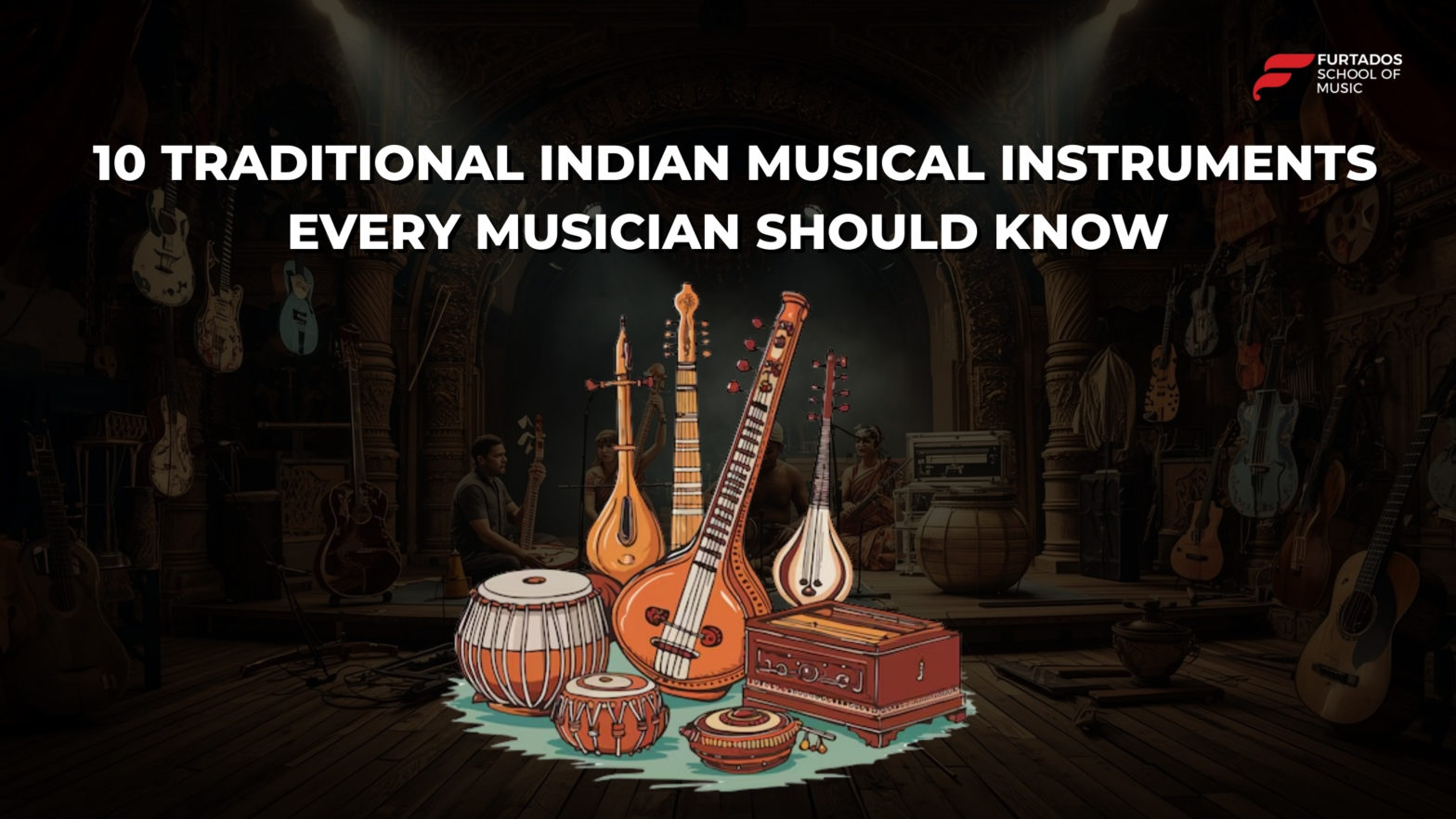India has always been known as the land of music and culture, with melodies and rhythms woven into every celebration, ceremony, and performance. The country’s rich heritage is reflected in its instruments, many of which have been around for centuries. From soulful strings to powerful percussion, traditional Indian musical instruments carry stories of devotion, artistry, and timeless expression.
If you’re a beginner looking to explore Indian music, here’s a guide to 10 instruments that define its essence.
1. Sitar – The Voice of Indian Strings
The sitar is one of the most recognized Indian classical instruments, known worldwide for its deep, resonant sound. With its long neck, sympathetic strings, and complex playing style, the sitar became globally popular through maestros like Pandit Ravi Shankar.
2. Tabla – The Heartbeat of Rhythm
No Indian concert feels complete without the tabla. This pair of hand drums is central to both folk and classical Indian instruments. The smaller dayan produces sharp tones, while the larger bayan creates deep bass sounds, together forming intricate rhythmic patterns.
3. Harmonium – The Companion Instrument
Often found in bhajans, ghazals, and qawwalis, the harmonium is a reed instrument played with a keyboard. Its versatility makes it one of the most widely used traditional Indian musical instruments, especially in vocal accompaniment.
4. Veena – The Divine Instrument
Associated with Goddess Saraswati, the veena is a symbol of learning and knowledge. It has a large, pear-shaped body and produces rich, melodious tones. The veena represents the depth of Indian classical instruments and remains a favorite in Carnatic music.
5. Dhol – The Energy of Folk Music
If the tabla is classical, the dhol is folk. Played with sticks and worn around the neck, it delivers high-energy beats perfect for weddings, festivals, and dances like bhangra. Among folk and classical Indian instruments, the dhol stands out for its raw power.
6. Shehnai – The Sound of Auspicious Beginnings
The shehnai is a wind instrument traditionally played at weddings and festive occasions. Known for its celebratory tone, it holds a special place in North Indian traditions. Ustad Bismillah Khan famously elevated the shehnai to concert stages across the world.
7. Sarod – Expressive and Soulful
The sarod is a fretless string instrument that produces haunting, deep sounds. Its versatility makes it ideal for fast passages as well as slow, emotional ragas. It is a true gem among Indian classical instruments, offering both technical and emotional richness.
8. Mridangam – The Pulse of Carnatic Music
In South India, the mridangam is the primary percussion instrument. Its two drumheads are played with the hands to create rhythmic complexity. It is to Carnatic music what the tabla is to Hindustani music
9. Bansuri – The Flute of Krishna
The bansuri, or bamboo flute, is one of the oldest traditional Indian musical instruments. Closely tied to the stories of Lord Krishna, its sweet, airy sound is a favorite in both folk traditions and classical performances.
10. Tanpura – The Eternal Drone
Though it is not a melody instrument, the tanpura is essential for setting the pitch and tonal foundation in Indian music. Its continuous drone creates the atmosphere in which ragas are performed.
Why These Instruments Matter for Musicians
Exploring folk and classical Indian instruments helps musicians understand the cultural and emotional depth of Indian music. Each instrument offers a unique timbre, technique, and story, making them not only tools for performance but also gateways to India’s heritage.
For beginners, even learning about these instruments builds appreciation for rhythm, melody, and the interconnectedness of music traditions across the country.
Final Note
The beauty of India’s music lies in its diversity. From the dhol’s festive beats to the sitar’s meditative strings, traditional Indian musical instruments continue to inspire musicians worldwide. Whether your passion lies in classical ragas or folk celebrations, these instruments open doors to an endless world of sound.
If you’re eager to explore or even learn how to play some of these timeless instruments, FSM (Furtados School of Music) offers structured programs designed to nurture beginners and aspiring musicians alike. With expert faculty and innovative learning methods, FSM ensures that India’s musical legacy continues to inspire future generations.
